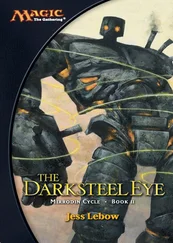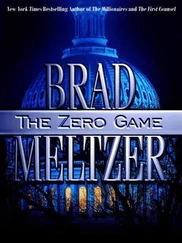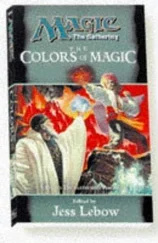SLIDING, CLUTCHING, hands and toes clenched, hail streaking behind his eyelids, Remy woke in a gasp of stale air, claustrophobic, strapped in, his face pressed against a cold round window.
He looked around. He was on a dark jet, everyone around him sleeping. He was in a window seat, alone in his row, sitting in coach toward the front of the plane. He sat up and looked around. It was a light load, but all of the passengers seemed to be asleep, curled up on tiny white pillows or holding small gray airline blankets like toddlers with stuffed animals. No one stirred. Remy had heard stories of flights in which the ventilation system failed and everyone passed out and the plane crashed. Honestly, he wouldn’t mind; just going back to sleep. He checked his watch. 2:12. Dark outside, so 2:12 A.M. What time zone? Did it matter? Had he set his watch in Kansas City? Or was it on East Coast time?
He frisked himself and finally found a boarding pass, folded and stuffed in his pants pocket. Miami . He was going to Miami. On the back of the boarding pass he’d written “Markham” and a cell phone number. He stared at the number for a while, then wadded the paper and stuffed it in the pocket in front of his seat.
A pretty Korean-American flight attendant came by with a cup of coffee and sat in the aisle seat in his row. “I didn’t know if I was supposed to wake you… if you guys are supposed to sleep or not,” she whispered. “But you looked so tired, I didn’t have the heart to disturb you.”
Remy took the coffee. He wondered: what guys?
The flight attendant squeezed his arm.
“Thanks,” Remy said. “You know… I don’t think I’m supposed to fly. My eyes.”
She laughed politely, as if this had been a misfired joke. Then she stood up and walked away, bent over as if walking beneath a helicopter. When the flight attendant was gone, he patted himself and found a plastic case inside his breast pocket. He pulled it out and wasn’t entirely shocked to find a badge with his picture, and beneath it, the letters NTSA, and the words Air Marshal . He put his badge back in his jacket, leaned back in his seat and looked out the window.
REMY HATED the ocean’s smell, and the way it burrowed, not only into your nose, but your mouth and your ears, in your whole head. It was like the smell at The Zero in that way, overpowering and everywhere. You took it home with you, and once you smelled it again, it seemed to never have left you. Remy closed his eyes and felt the lurch of the boat as they churned through a rough patch of chop, the shore a narrowing band behind them. The sun was setting back there, too, and he felt a cool blast of sea wind that told him they were chugging toward night. He had the sense of the heat pouring off his skin, as if he’d been warm all day and now was about to get cold. He was in the open-air cabin of a cruiser about thirty feet long, sitting across from Markham, who wore a ridiculous nautical windbreaker and a jaunty cap, both with a gold anchor stitched onto them. He was sniffing at the air like an old captain who’d been away from the sea for years. The only other person on this boat was the man piloting it, a thin Hispanic man, pinch-shouldered, in black jacket and jeans, the smoke from a thick cigar drifting off him like morning fog. Next to the wheel a computerized screen showed their position on a topographical map, and the pilot kept checking it, until finally he turned and gave a toothy smile. “That’s it! International waters, my friends!” he yelled. “ Tres Cubanos, por favor! ” He reached beneath his seat and came up with three fat cigars, two of which he offered his passengers.
Remy waved his cigar off, but Markham happily took one. “Can I have yours?” he yelled over the rumble of the motor and the blasts of wind.
Remy nodded, and then closed his eyes and let the wind buffet his face. He imagined that he deserved this, whatever this punishment was. Cigar smoke wafted in the salt air. “Hey!” He yelled to Markham. “Am I an air marshal?”
Markham and the pilot both burst into laughter. “See what I mean?” Markham asked the pilot, who nodded furiously. “Guy’s a pro. Every once in a while he just pops off with that deadpan material.”
The boat’s pilot shook his head in appreciation. “So what do you guys do, back in the world, before all this?”
“Remy here used to be a cop,” Markham said. Then he glanced over, to see if Remy was listening and said, quietly. “And actually, I was an executive chef at a resort in Idaho.”
“No shit?” the pilot asked.
Remy closed his eyes again and held them shut for a long time, and when he opened them it was noticeably darker; the sun had fallen behind the thin, faint line of shore. He wondered if a normal amount of time had passed or…
Ahead of the cabin cruiser, a larger ship, a small freighter, bobbed on the water. It may have been an old fishing boat, or maybe a ship used for canning, the hull rusted and lightly pocked with barnacles, its profile growing as they approached it, a ketchup-red stripe just at the waterline.
They came abreast of the bigger ship, and in the dusky light Remy could see a rope ladder hanging off its inky black side. The pilot of the cruiser cut his motor and they drifted up against the freighter, their boat maybe an eighth its height, the hulls slapping together like someone smacking his lips. “Thanks, Chuck,” Markham said. “We should be right back. Wait here.” Markham hoisted a small pack on his shoulder, then grabbed the rope ladder and started up. Remy followed him, hands gripping the wet ladder, and swung over the railing onto the abandoned deck of the larger ship, which was about eighty feet in length, with a two-story cabin and stairs leading below. There was no one up top, although Remy could see in the bridge where a coffee cup sat next to the wheel.
The deck lilted back and forth on the light swells as they made their way toward the stairs. Remy peered below into the narrow staircase leading to a hallway, lit by bare bulbs strung along the wall. At the top of the stairs, Markham turned. “Okay. We all set?” He didn’t wait for an answer, but grabbed the railings and began lowering himself down the stairs. After a moment, Remy followed.
The hallway was too narrow for both of them to fit, so Remy followed Markham’s back as he made his way the length of the ship, past the closed, rounded doors of cabins. Remy couldn’t place the smell down here, or rather he couldn’t separate the blend of smells: sweat and salt and cigarette smoke and strong coffee. Finally, Markham paused in front of a white metal door, turned the handle, and stepped inside. Remy followed and they entered a long, narrow compartment, with chipped paint on the walls and a low, flaking ceiling, all of it illuminated by a bright, bare bulb in the center. There was no furniture, just a metal pole parallel to the ground, like a banister, or a high ballet bar, stretching the width of the room, about five feet off the ground. Remy gasped.
There, on the bar, a man was perched like a trophy, hanging forward, his arms tied behind his back and slung on the bar so that it held him by the armpits, his feet against the wall dangling a few inches from the floor. The man was wearing nothing but a pair of tight red briefs and one white sock. It was cold and clammy in the room and his thick chest hair was wet and matted. A bucket of water sat below his feet. His shoulders and clavicles rose to points well above his head, which hung limply, bushy black hair dripping wet. Two other men were leaning against the opposite wall, bored-looking young men in jeans and plain sweatshirts, with short haircuts, standing guard, laughing at a private joke.
“Hey, fellas. You takin’ a break?”
“We thought we should save you some. Guy’s an hour from being jerky.” One of the big guys walked over, got a tin cup out of the bucket, and threw water on the man’s face. His head rose slowly. Remy could see cuts on his cheeks and forehead and his lips, and guessed it was salt water they’d thrown on him. The man looked around wildly, his eyes finally settling on Remy, who had to look down at the ground. Markham nodded to the two men in the room and they backed out, leaving just Remy, Markham, and the young Middle Eastern man hanging by his arms. Remy could hear steps in the hallway, then on the stairs leading back up top.
Читать дальше












